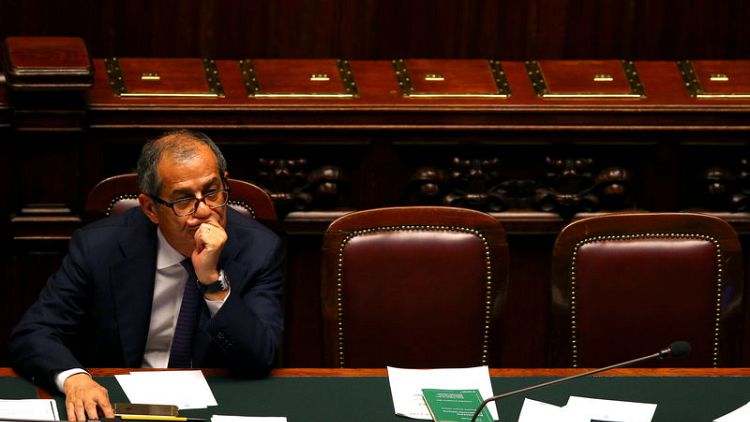BRUSSELS (Reuters) - The European Commission is concerned about the budget deficits planned by Italy for the next three years which it said contravene what European Union finance ministers asked Rome to do in July.
In a letter to Italy's Economy Minister Giovanni Tria the Commission said that with a planned headline deficit of 2.4 percent of GDP in 2019, Italy's structural deficit, which excludes one-offs and business cycle effects, would rise by 0.8 percent of GDP.
The council of EU ministers, however, asked Italy in July to reduce that structural deficit by 0.6 percent of GDP next year, which means the deficit would be 1.4 points off track.
Italy is planning to bring down the headline deficit to 2.1 percent in 2020 and to 1.8 percent in 2021, but that would not be enough either, the Commission letter said, because it would mean Italy's structural deficit would not change in 2020-21.
Under EU rules Italy, which has a public debt to GDP ratio of 133 percent and the highest debt servicing costs in Europe, should cut the structural deficit every year until balance.
"Against this background, Italy’s revised budgetary targets appear prima facie to point to a significant deviation from the fiscal path recommended by the Council. This is therefore a source of serious concern," the Commission letter said.
"We call on the Italian authorities to ensure that the Draft Budgetary Plan will be in compliance with the common fiscal rules," it said.
Italy is to submit its draft budget to the Commission for checks if it is in line with EU rules by Oct 15.
If the Commission decides it blatantly breaks the rules it can send it back to Rome to be revised, something that has never happened before.
(Reporting by Jan Strupczewski; Editing by Alexander Smith)



